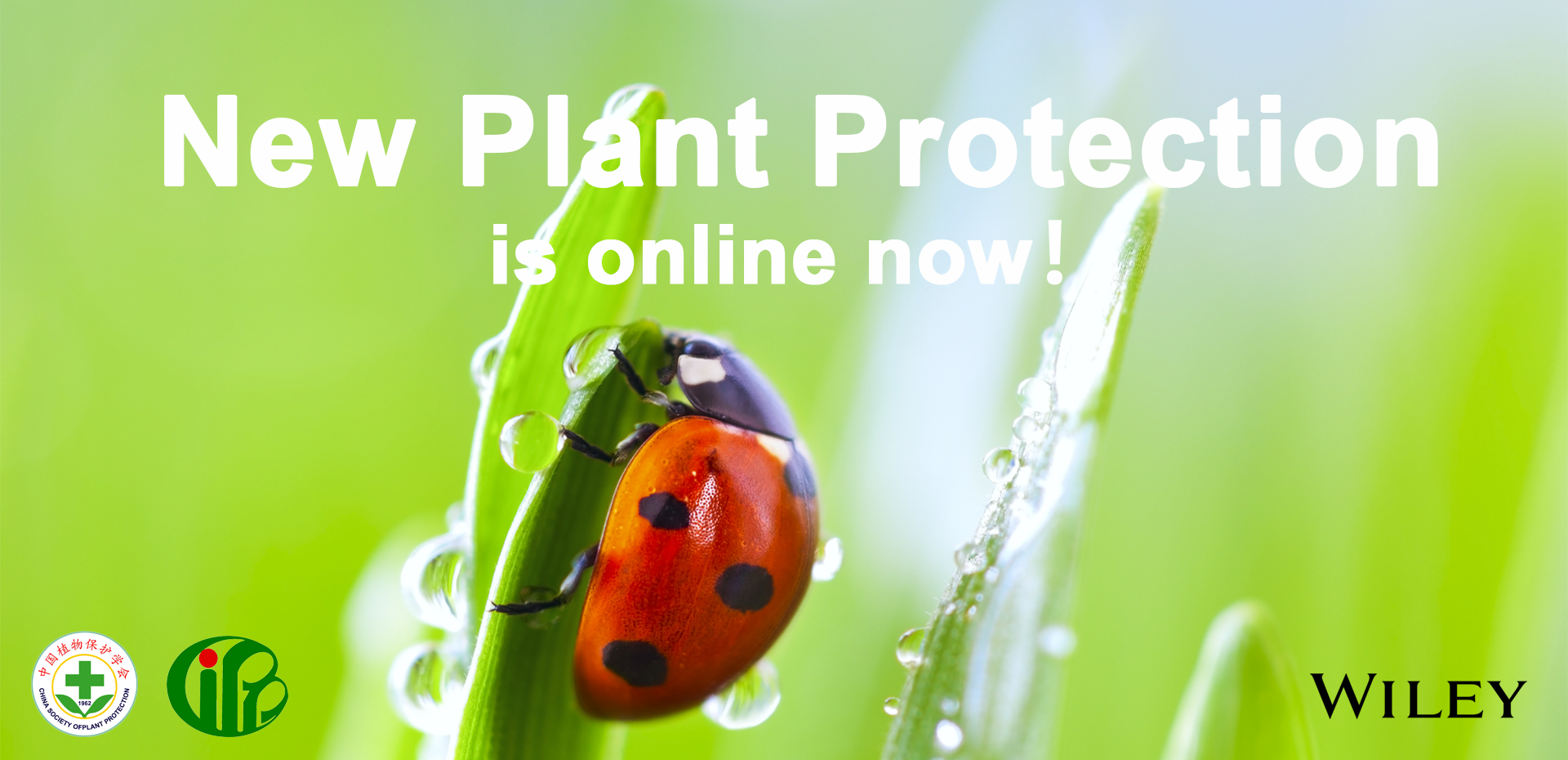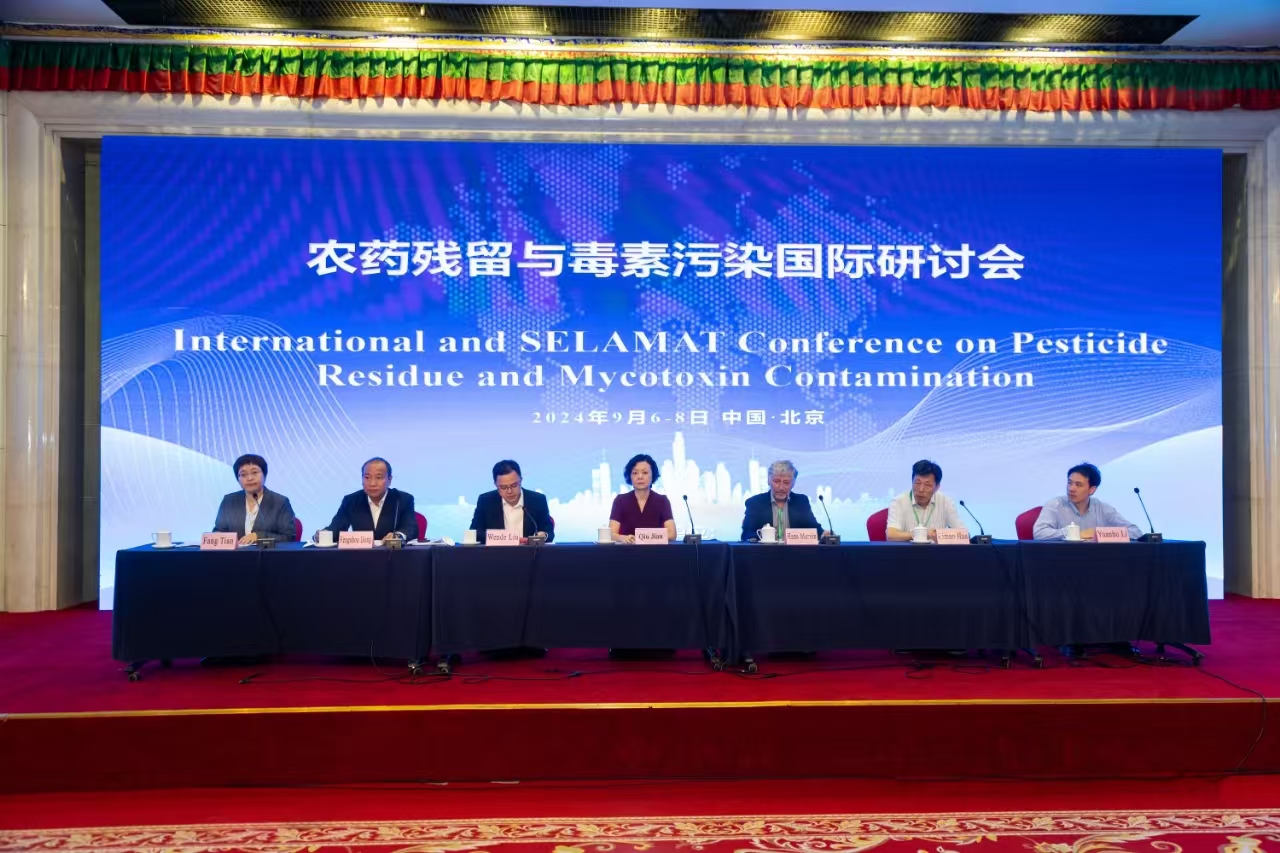Prevention and control of vegetable diseases and insect pests by biological control technologies in greenhouse has made prominent effect
On May 13, 2017, the On-Site Meeting of Biological Control Technology Demonstration for Vegetable Diseases and Insect Pests Control in Greenhouse was held by the Biological Control Research Team, IPP-CAAS, in a Tianjin vegetable demonstration base. The meeting showcased the integrated effect of biological control technologies including natural enemy insects, microbial pesticide, bee pollination, etc. Academician WU Kongming, the vice president of CAAS, Mr. CHEN Youquan, DDG of the Department of Crop Production, MOA, Mr. ZHANG Yuejin, the chief scientist of the National Agricultural Technology Extension and Service Center (NATESC), Prof. ZHOU Xueping, DG of IPP, Mr. MAO Kejun, DDG of Tianjin Municipal Agricultural Commission and Mr. Zhao Hui, the Vice President of Tianjin Agricultural College were present at the meeting. Mr. ZHANG Bujiang, DDG of IPP-CAAS, chaired the meeting.
The participants inspected the effects after applying the whole course control technology integrated for facility vegetable diseases and insect pests. The integrated technology is biological control with the dominant, ecological regulation as an aid, and combination with different environment friendly measures. They inquired the details about the application process of the serial products including natural enemies, microbial pesticides, etc., developed by the biological control team at IPP.
It was learnt from Dr. ZHANG Lisheng at IPP, the chief scientist of the project Whole course control technology integrated for application in facility vegetable diseases and insect pests, that the Biological Control Research Team, collaborated with Tianjin Agricultural University and Jinghai Zhongyuan Vegetable Farming Professional Cooperatives, implemented an achievement transfer focused on releasing natural enemy insects and plant colonization according to the vegetable production characters in greenhouses in North China. The project was supported by the fund of ASTIP from CAAS and S&T transformation fund from Tianjin Municipal Agricultural Commission. After three years’ optimization, demonstration and application of the technologies, a highly efficient technology system covering the whole course of vegetable production with high benefit, that is green, safe, standardized in production, simple and reproducible has been established. Currently, no chemical pesticides were used in the plastic greenhouses in the vegetable base in the light of standardized operation written on the production calendar. Biological control techniques, such as natural enemies, bio-pesticide, ecological regulation, bee pollination, etc., were adopted. Greenhouse diseases and insect pests were under control. All of the vegetables produced reached the grade of organic products. Cost saving and income increase was obvious. The cost saved is around 37,200 yuan RMB per ha and the yield increase was about 10%, i.e., around 128,700 yuan RMB per ha. The biodiversity of the environment was improved at the same time. The ecological and social benefits are obvious. Farmers around the base came to learn the bio-control techniques spontaneously. Due to the outstanding effect on the application of natural enemy insects and Wuyiencin, this base was granted as National Natural Enemies Insects Science and Technology Innovation Alliance of China by MOA and the Demonstration Base of National Introduced Foreign Intellectual Achievements by Bureau of Foreign Experts Affairs of China.
CHEN Youquan affirmed this on-site meeting fully. He said that the cooperation between IPP-CAAS, university and agricultural enterprise established an integrated technology mode in green control and increase of yield and efficiency. It was important to promote the development of modern agriculture. He emphasized that it was imperative to study and develop green control and increase of yield and efficiency and was a necessary measure to implement the new development concept of modern agriculture. It was the important tactics of constructing beautiful China, beautiful countryside and ecological civilization, he said. As far as promoting the extension and application of bio-control techniques is concerned, CHEN Youquan stressed it should incorporate the relative techniques with the pest control system for large-scale pest prevention into national agriculture and enlarge the scale of application and enhance the positivity of enterprises. Directed at major diseases and insect pests in specific crops, it was necessary to fit effective techniques in order and rational way and avoid simple piling up of different techniques. He also stressed to strengthen collaborative work, integrate resources, complete constantly and incubate technical modes and demonstrate in large scale and form product brands. He requested to adjust measures to local conditions and form modes with regional differentiation. Such, the techniques could be repeated and extended in appropriate regions and walk out of Tianjin and extend to the country, CHEN finalized.
WU Kongming highly valued the growing of Biological Control Research Team at IPP and the R&D achievements obtained. He said that this on-site meeting intensively reflected that IPP had established a biological control research team with complete discipline, researched and developed a batch of biocontrol techniques and products, realized the industrialization of the products, established a greenhouse vegetable biocontrol technique system and formed a cooperative innovation mechanism of industry-university-research. This integrated extension of greenhouse vegetable biocontrol technology realized zero use of chemical pesticide throughout the growth of vegetables. It indicated that biocontrol could sufficiently solve the omnibus problems existing in the control of diseases and insect pests, WU said, and determined the confidence of using biocontrol technologies.
Aimed at the deepened promotion of the integrated demonstration of biocontrol technology next, WU put forward following requirements: (1) Stick to biocontrol of vegetable diseases and insect pests in facility agriculture. IPP should integrate resource allocation and research force and focus on specific research targets to work collaboratively. (2) Aim at the characteristics of regions where the techniques were intended to be used and work out technical regulations that center on biocontrol and establish reproducible, simple and extendable technical standards. (3) Adapt to the overall developmental new trend in agriculture in China and integrate biocontrol techniques into the pest control system for large-scale pest prevention so as to drive the large scale extension of biological control. (4) Summarize carefully the successful experience obtained in biocontrol of vegetable diseases and insect pests in facility and protected land, study the biocontrol of field crop diseases and insect pests in the context of integration of Beijing-Tianjin-Hebei and promote more generally the regional pest control for large-scale prevention and integrated management.
ZHOU Xueping indicated that IPP would implement the Government’s requirements for national S&T innovation and promotion of agricultural supply-side structural reform. IPP would strengthen further the incubation of biocontrol discipline, combining the all-round promotion of ASTIP, and contribute greater to the effective control of major diseases and insect pests in facility vegetables and even field crops and safeguard the quality safety of agricultural products.
More than 70 people, including officials, experts in biocontrol and local technicians, attended this meeting. The participants included Investigator WANG Jianqiang from the Division of Plant Protection and Quarantine, the Department of Crop Production, MOA, Director YANG Puyun, the Division of Pest Control, NATESC, DDG WANG Dengshan, the Department of Agricultural Technology Transfer, CAAS, DDGs QIU Dewen, ZHENG Yongquan, and SHEN Yinshu, IPP-CAAS, Director YUAN Huizhu, the Department of General Administration, IPP-CAAS, Director ZHANG Dongsheng, the Department of Achievement Transfer, IPP-CAAS, Investigator JIANG Hongquan from the Division of Rural Area, Tianjin Municipal Agricultural Commission, Director General WANG Wanli, the Institute of Plant Protection, Tianjin Academy of Agricultural Sciences (TAAS), Deputy Director ZHANG Zhuhua of Tianjin Plant Protection Station, Mr. CHEN Lin, the technical director of Zhongyuan Farm, Jinhai County Demonstration Base, Tianjin Municipality, and Program Commissioner QIN Qi, the Department of Eco-Agriculture Affairs, Leping Public Welfare Foundation.
-
 China-Laos Training Workshop on Integrated Management of Destructive Crop Pests and Diseases Successfully held in Laos
China-Laos Training Workshop on Integrated Management of Destructive Crop Pests and Diseases Successfully held in Laos -
 New Plant Protection: New challenge and new opportunity for plant protection
New Plant Protection: New challenge and new opportunity for plant protection -
 International and SELAMAT Conference on Pesticide Residue and Mycotoxin Contamination Held in Beijing
International and SELAMAT Conference on Pesticide Residue and Mycotoxin Contamination Held in Beijing -
 CAAS President Meets Chairman of ASEAN FAW Taskforce
CAAS President Meets Chairman of ASEAN FAW Taskforce
